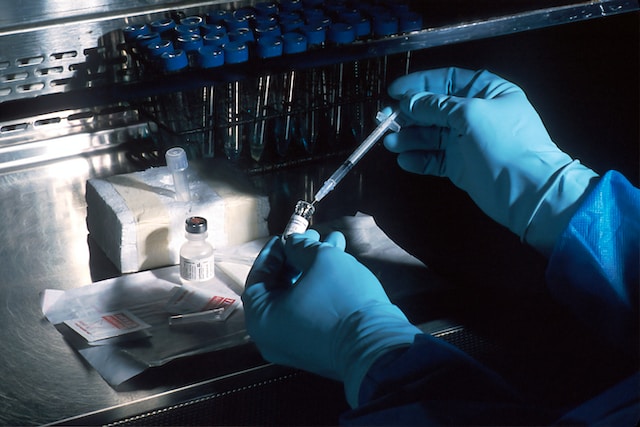Biotechnology has been progressively growing as a complex industry in recent years and has a CAGR prediction of 13.9% from 2022 to 2030. This is mainly due to the continuous advancements in science, technology, and biology which open up new opportunities. This expansion can be attributed to several factors including technological innovations, new research discoveries, and developments, as well as increased investments by some of the biggest companies around.
The biotechnology industry is on track to continue its remarkable rise. Advancements in molecular biology, genetics, and bioinformatics made creating new types of therapies, and diagnostics possible. Read on to learn more about the recent biotech trends.
Microbioreactors
Microbioreactor technology has revolutionized biotechnology by allowing researchers to study various biological systems at scale, in both pharmaceutical, academic, and industrial environments. This advanced technology has allowed scientists to reach new heights of efficiency and effectiveness since they provide the opportunity to create the right cell environment in a shorter time and monitor cell division.
Due to their flexibility and scalability, microbioreactors are becoming increasingly more popular than ever. These systems can accommodate large-scale pilots or bioprocesses at minimal cost, providing reliable results that laboratories will find invaluable.
Microbioreactors are typically designed for batch or fed-batch processing. To boost production efficiency, many companies are now working on developing microbioreactors that can operate continuously in chemostat mode. This system will drastically reduce manufacturing costs and enhance product consistency.
Precision Medicine
With the advancements in genomic sequencing and other related technologies, precision medicine has seen a meteoric rise. Precision medicine allows researchers to craft individualized therapies that take into account each patient’s genetic makeup, providing highly effective and targeted treatments. This allows for the precise management of life-threatening and chronic illnesses with greater precision.
This form of healthcare makes sure patients around the world get better diagnoses, treatments, and outcomes. This personalized approach to medicine that tailors treatments specifically for each patient have become increasingly popular due to its potential to deliver more efficient and less hazardous outcomes compared to traditional methods.
Bioprinting
The introduction of additive manufacturing in biotechnology has allowed startups to offer a wide variety of products and materials. These bioprinters are made from bio-based materials and biomaterials. Medical applications use cells as scaffolds to grow on top of a scaffold. This allows the creation of bone, skin, or vascular transplants using the patient’s cells. Bioprinting is also used by other startups for rapid prototyping and the creation of biopolymers.
Gene Editing
Gene editing technology has revolutionized biotechnology and medical research and treatment. CRISPR technology in particular is driving this field forward by providing precise genome editing – something previously impossible. Through targeted modifications of one gene or sequence of genes, gene editing holds immense promise for curing diseases and creating new treatments.
Researchers are utilizing this technology to develop treatments and diagnostic tools that could improve the lives of millions. Furthermore, scientists are able to use it for finding previously unimaginable solutions in agricultural products which could revolutionize how we live today.
Artificial Intelligence and Machine Learning
The biotechnological industry is progressing rapidly due to the introduction of machine learning (ML) and artificial intelligence (AI) which allow researchers to focus on more important aspects of their jobs. These powerful tools allow researchers to analyze large amounts of data, identify new drug targets, and biomarkers, or create more efficient clinical trial protocols.
AI and ML have presented researchers with a plethora of opportunities, providing unprecedented insights into biological processes that can aid further biotechnical discoveries. Furthermore, these technologies have the potential to significantly improve patient outcomes as well as optimize drug development processes for more effective treatments.
For example, modern radiology equipment gathers significant amounts of data that can be interpreted in an AI-supported radiology PACS system. This system gives radiologists more information on which to make informed decisions and lowers false negatives in cancer detection. Additionally, systems like this allow remote reading with cloud-based servers and improve the information availability for radiologists to work more efficiently.
Digital Health
Digital health technology has emerged as the most significant trend in biomedical technology. Collecting information from patients who use technologies like wearables, mobile apps, and telemedicine has been revolutionized in recent times.
We’ve witnessed incredible advancements in therapies and treatments due to these digital health tools that wouldn’t be possible without them. For example, it has been observed that patients using insulin pumps experience fewer episodes of severe hypoglycemia and reach their HbA1c targets with greater success.
These cutting-edge technologies can significantly improve patient outcomes, lower healthcare costs, and overhaul how healthcare is delivered. Utilizing advanced computer technology, these tools boost diagnosis accuracy and expedite treatments; while also drastically cutting delivery fees in half.
Conclusion
Biotech is an ever-evolving field that promises significant rewards for society. Researchers are tirelessly working to explore the frontiers of science, aiming to develop treatments, diagnostic equipment, and other services that could make a significant difference in the lives of individuals globally.
Precision medicine, gene editing, artificial intelligence, and machine learning have made healthcare more accessible and easier than ever. These groundbreaking developments have opened up possibilities for improved diagnosis and treatment of diseases and enabled greater personalization of medical services. With continued growth within biotech, further breakthroughs may occur over time.







